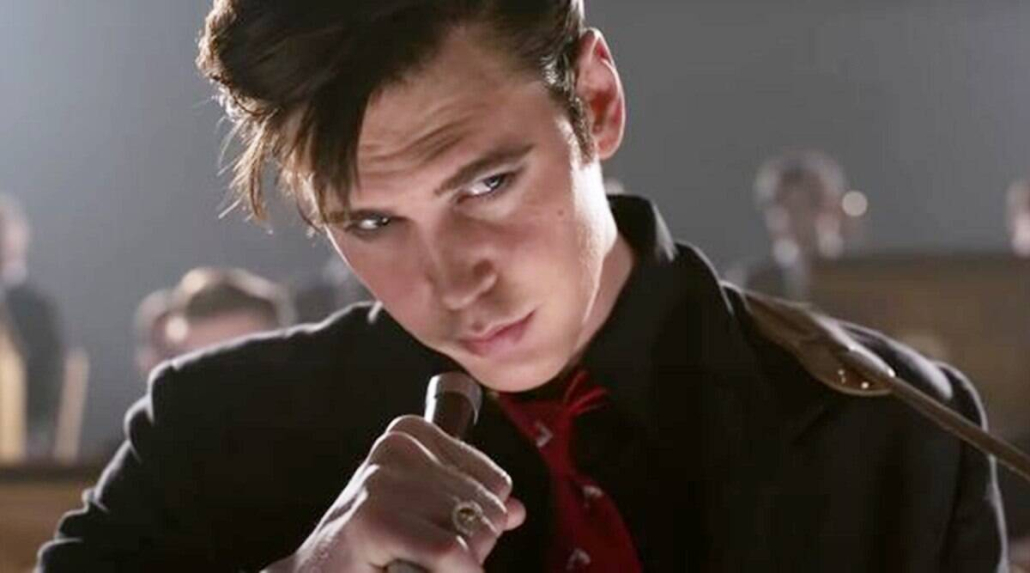‘Elvis the Pelvis’ and Tom Hanks’ fatsuit

I want to preface this review with a couple of notes. One: I am an Annenberg student, not an SCA student, and I know absolutely nothing about academic film theory. Two: I love Elvis. One of my most prized possessions happens to be a genuine 1977 photograph of his grave that I found behind an antique store shelf. As I type it out now it seems like a very morbid confession, but I purchased it in good faith, I promise. And three: The cost of the ticket to see this movie was the same as the amount I’m getting paid for this review, so I’m basically doing this pro bono.
With all of that being said, I will do my best in bringing forth an objective review of this summer’s hottest biopic.
To pregame my viewing of “Elvis” this weekend, I went to Vegas for two days and listened to Phoebe Bridgers’ “Graceland Too” aplenty. Yet I was still unprepared. The first few minutes of the newest Elvis Presley biopic made me feel as if I accidentally missed my theater number and sat down in a virtual roller coaster simulator. Much like the stage outfits worn by Presley, the film’s cinematography was flashy, oversaturated and, perhaps, should have come with a motion sickness warning.
Austin Butler (of “Sharpay’s Fabulous Adventure” and “Aliens in the Attic” fame) plays The King this time around and puts every other Elvis impersonator to shame. Instead of treating the role as a cheesy act, as so many Vegas-based mimics have, Butler makes this look like the most brutal workout regime of his life, as much of his screen time is devoted to onstage performances where he is expected to perform otherworldly moves. His sex symbol status just adds to the intensity of his choreography, as he woos everyone in his audiences with his eyeliner and hip-thrust combo. In short, before women were throwing their bras to A$AP Rocky on stage, they were throwing their underwear to Elvis.
Yet it is Elvis’ role as a sex bomb entertainer that takes away from his humanity, a side of the superstar that audiences expected to be covered in this film. With Elvis’ manager, Col. Tom Parker (Tom Hanks) as narrator of the story, Presley feels more like a phenomenon than a human. Major parts of Presley’s personal life — including his relationships, substance abuse and health problems — are noticeably minimized in favor of focusing on the toxic and draining relationship between the star and his longtime manager.
While it is an unexpected choice of narrative focus, Luhrmann’s intentions shine through. Instead of being a painstakingly detailed biography of the late legend, he instead attempts to illustrate the dangers and exploitative nature of the entertainment industry and how easily genuine talents and cultural phenomena can be snuffed out by greed. Still, the emphasis on Parker (and Hanks’ fatsuit) detracts from what the audience came to see: the King himself.
Luhrmann also spends significant portions of the film demonstrating just how much influence Black culture had on Elvis’ career, illustrating that the star wouldn’t be nearly as bright without gospel,rhythm and blues. Beale Street is just as much a character in this film as anyone else, portrayed through R&B titans B.B. King (Kelvin Harrison Jr.) and Big Mama Thornton (Shonka Dukureh) who serve as Presley’s main source of inspiration.
The film’s soundtrack sees modern hip-hop intertwined with Elvis’ biggest hits, featuring the likes of Doja Cat, Denzel Curry and Nardo Wick. There’s also a mashup featuring Britney Spears’s “Toxic” and the Backstreet Boys’ “Everybody” that left me floored.
With so many elements spanning Elvis’s entire lifetime interwoven into one 159-minute feature, it’s easy for the film to seem dizzying. And Luhrmann welcomes it, interchanging appearances and moods at the blink of an eye. The film reveals many darker sides to Presley, as well as emotionally poignant moments (a group of older women in my row at the theater shed some tears).
In short, this is more of a visual contribution to Elvis’ larger-than-life legacy than a completely historically accurate one. But this might be expected, considering that Luhrmann’s style relies on maximalism, not accuracy. The narrative can be wishy-washy, and the over-the-top edits, cuts, and musical numbers can be jarring. Yet it is more than worth the watch, and definitely one of the must-see movies of this year. Even if Austin Butler egregiously smolders every single time he’s onscreen.

